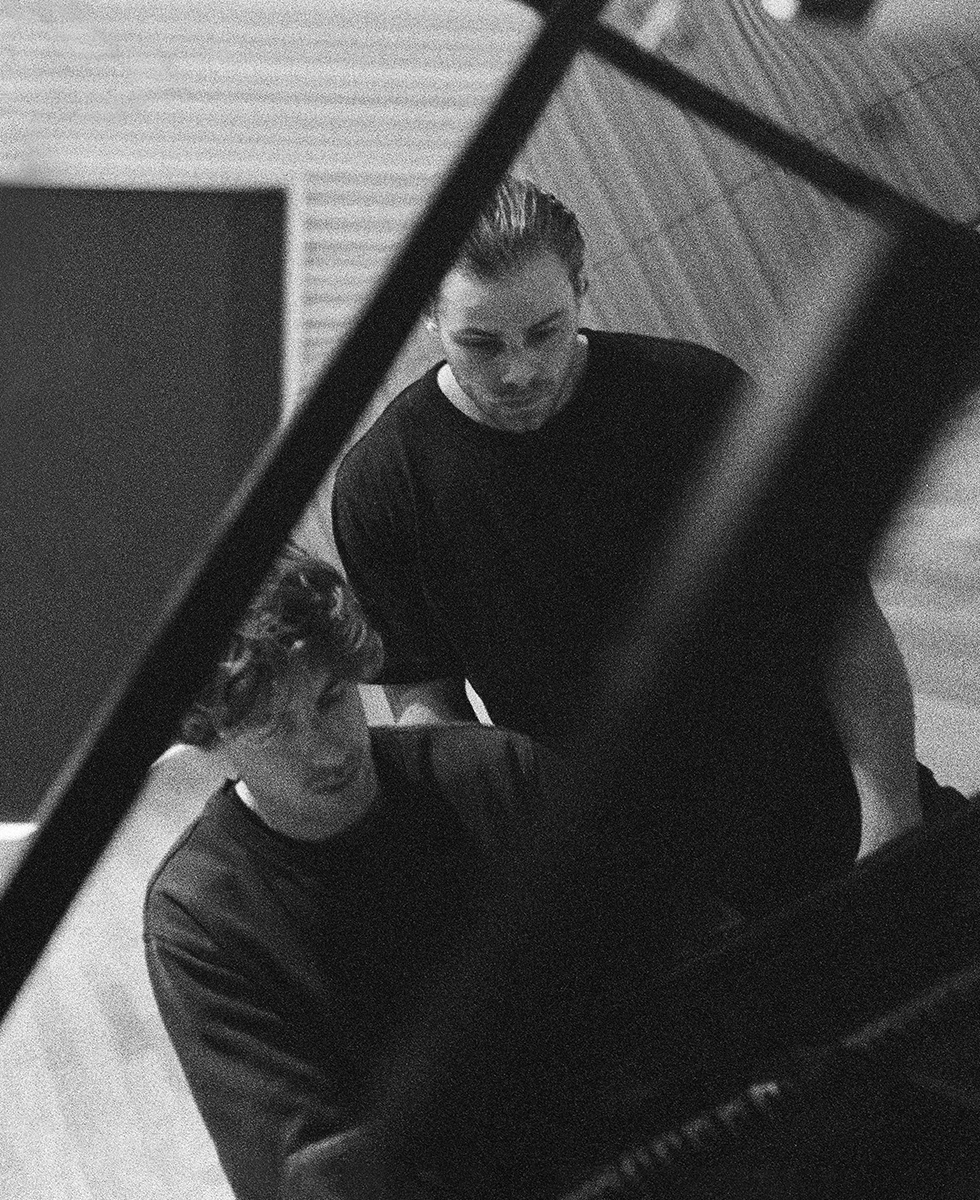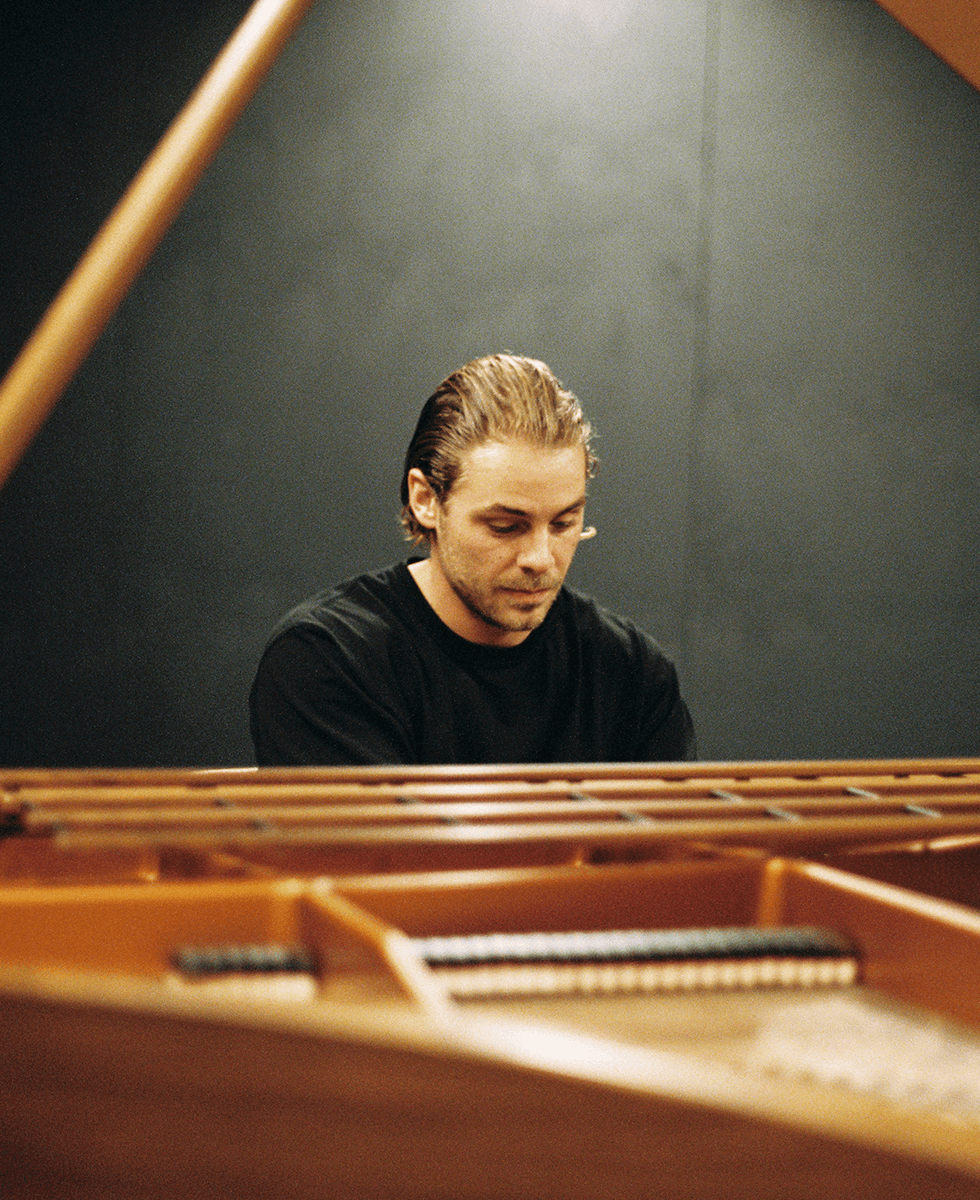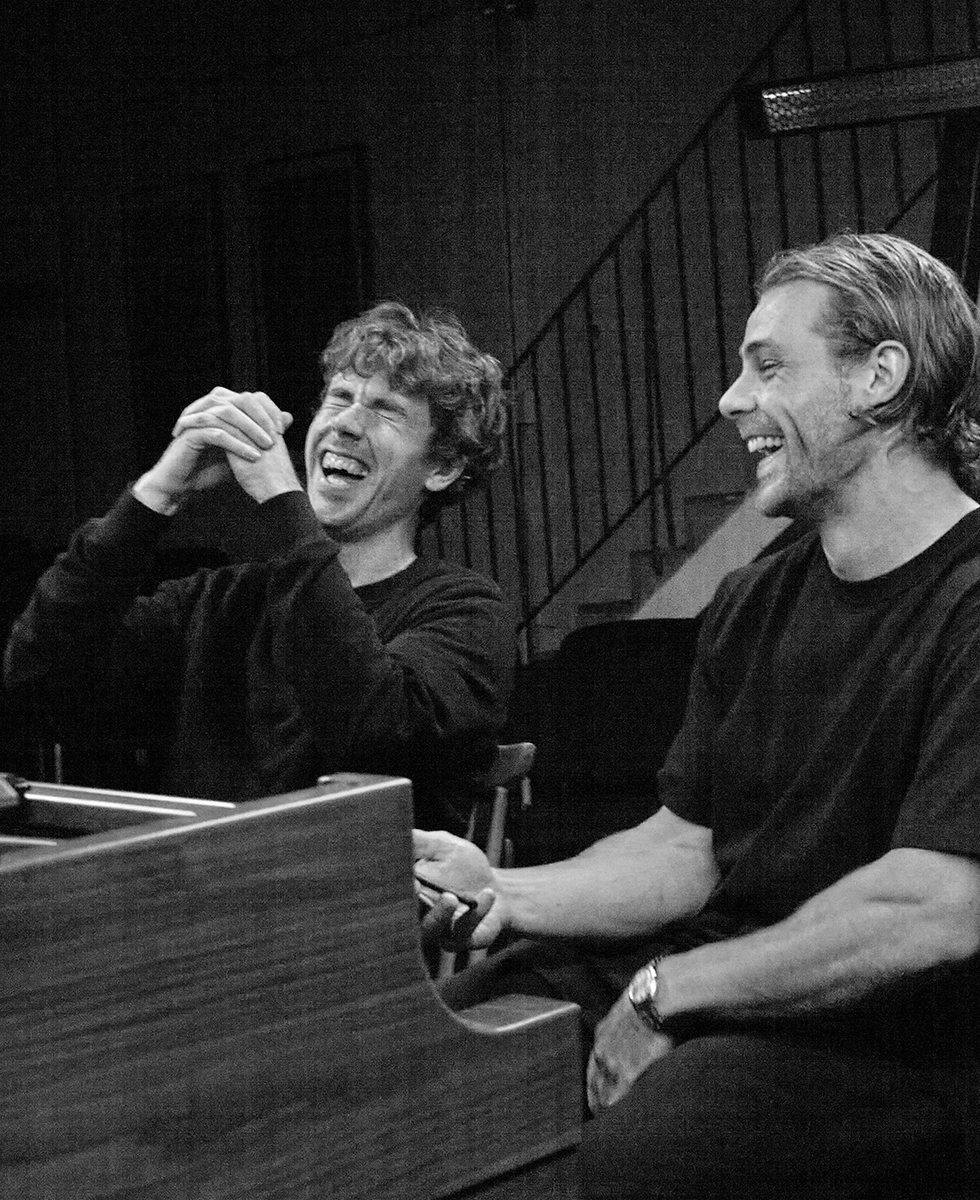Focus on the process – In conversation with Jack Vanzet and Josh Hooke
Jack Vanzet of Thrupence and prize-winning pianist Josh Hooke bring classical composition and contemporary electronic music methods together in great harmony.
Classical music and contemporary electronic music may seem like wildly contrasting worlds, one with a deeply engrained history spanning centuries, and one with an ever-evolving future, however the two genres do share many moments of harmony.
Jack Vanzet, a multidisciplinary artist, designer and music producer from Melbourne, Australia, has been producing music under the moniker Thrupence since 2010. In more recent times, Vanzet’s musical output has taken a turn towards classically inspired works that intertwine traditional instrumentation with contemporary electronic and pop influences.

Over the recent lockdown period, Vanzet has teamed up with Melbourne-based, prize-winning classical pianist Josh Hooke. Hooke performs regularly as a recitalist, concerto soloist and chamber musician throughout Australia, as well as in Europe and the UK. He has studied with a number of eminent pianists, including Ian Holtham, Imogen Cooper in London, as well as Paul Badura-Skoda in Vienna, and was among his last students. Together, their diverse backgrounds in music and visual art have resulted in ‘Composites’ – a musical collaboration where the process is the focus.
Following on from the cinematic and dreamlike landscape of Vanzet’s 2019 release ‘Piano Works’, which gathered tens of millions of plays across Apple Music and Spotify, ‘Composites’ is more paired down, and offered a new place for both Vanzet and Hooke to explore musical ideas outside of what they grew up with. “I’m the son of a music teacher so music was always very close by growing up,” says Josh Hooke. “I was lucky to have teachers and mentors who exposed to me a really wide variety of music.”
“I was lucky to have teachers and mentors who exposed to me a really wide variety of music.” – Josh Hooke
“I had a pretty straight down the line upbringing with classical music, piano lessons from a young age, lots of Bach, Beethoven, Mozart,” he continues. “I suppose that invariably rubs off in any foray into more contemporary styles of music. It’s been nice to be able to straddle the two worlds this last year or so.”

Vanzet comes from a slightly contrasting musical background. “I’m self-taught with a greater focus on technology. While most ideas start at the piano, I use layering and loops to build songs,” he says.
“I’ve always been fascinated by sound and melody and the way they can evoke emotion,” Vanzet explains. “I remember having incredibly powerful reactions to music as a kid with both classical and electronic music — I often feel like I’m trying to replicate and regain that same feeling in my own music. I can be just as emotionally affected by a 2-chord loop as I can by listening to a 40-minute Beethoven piece. Music is magic in that way — it reminds me to not overcomplicate things and trust gut instinct and feel.”
“I’ve always been fascinated by sound and melody and the way they can evoke emotion. I remember having incredibly powerful reactions to music as a kid with both classical and electronic music — I often feel like I’m trying to replicate and regain that same feeling in my own music.” – Jack Vanzet, Thrupence
Written in the midst of the pandemic, ‘Composites’ is the result of Vanzet and Hooke’s desire to experiment with contemporary and classical music. They’ve described the collaboration as being “informed by the method and the method informed the concept”. ‘Composites’ becomes a sonic manifestation of process above anything else.
“The music on the record never started out with any intention of being released — just something to keep us busy during the 2020 lockdowns. We would send each other short ideas and sketches that we’d been working on. We would each try to expand and build on one another’s ideas,” they explain.
“Eventually, we had a body of work. So, this method of taking ideas, slowly massaging, and building on them and eventually collating them into a body of work lead us to the concept of ‘Composites’. We expanded this idea into the visual side of the project as well — compiling scanned imagery of textures, colour, and line work to develop a suite of artworks that are greater than the sum of their parts.”
“The title of the record, ‘Composites’, alludes to the process, and nothing more. We wanted to leave space for the listener to interpret the music in their own way — to be free in their own experience of the record.”
Vanzet and Hooke were able to focus purely on the act of making music, the pieces we hear on the album becoming markers of completed creative processes. “The only intention we had was to be as unspecific as we could. The title of the record alludes to the process, and nothing more. We wanted to leave space for the listener to interpret the music in their own way — to be free in their own experience of the record.”
Speaking on their recording equipment for ‘Composites’, an unexpected but rather fitting piece of equipment became a crucial tool during their recording process.

“The most important piece of gear was actually the memo app in our phones. It was the main tool that we used to send our ideas back and forth,” they explain. “Aside from that, there wasn't any high-end equipment used for the recording sessions. We wanted to keep everything down to earth and accessible.”
That uncomplicated ethos extended to the instruments and gear used in the studio too. “We actually spent a few sessions recording the entire album on a Steinway Model D in a beautiful hall but felt the recordings were too clean and not true to the original concept of the project. We kept coming back to the standard black upright piano, the same as what you might find in someone's living room, a basic sound card and two closely mic’d condensers.”
“I think we were both surprised at how seamlessly these two styles – classical and electronic music – which are so contrasting on the surface, can work so smoothly together.” – Josh Hooke
At first glance, bringing classical music and electronic music’s contrasting elements together may pose some challenges, but Hooke and Vanzet have found plenty of moments where the two styles fuse together beautifully. “I think we were both surprised at how seamlessly these two styles, which are so contrasting on the surface, can work so smoothly together,” says Hooke. “As we were sharing ideas, we both started to see how there are so many things, which at their core, are really similar, such as approaches to structure, writing well-constructed songs etc.”

Vanzet also recalls the process of working on ‘Composites’ as one of liberation. “Seeing how Josh worked with my ideas opened new worlds of possibility and offered a fresh perspective on my own process. Being able to tell a narrative through song structure isn’t exclusive to one genre of music. So, even though they are very different worlds, they share many of the same principles.”
“It was really exciting just to get a first-hand insight into the real nuts and bolts of classical music making and composition, voice leading, why one harmony sounded cleaner than another, why this melody sounds smoother than that and so on.” – Jack Vanzet, Thrupence
‘Composites’ came together as an experiment with musical styles. It appears that through this experiment, both Vanzet and Hooke have taken elements of each other’s musical backgrounds as new learnings. “For me it was really exciting just to get a first-hand insight into the real nuts and bolts of classical music making and composition,” says Vanzet. “Voice leading, why one harmony sounded cleaner than another, why this melody sounds smoother than that and so on.”
Hooke echoes this sentiment. “Similarly, just to watch Jack at work behind the desk, slightly adjusting one thing or another to change the sound, to hear the minute control over colours and textures that’s possible was really exciting.”
This collaboration between classical music and modern technology shows how electronic music can evolve and become organic, breathing in similar ways to that of traditional instrumentation. It’s about finding the places where the music naturally fits together. This same sentiment feeds into collaboration between partners.
“I think we were really lucky in that we were good mates first and artistic collaborators second. The notion of collaboration was only ever really hit upon when we realised that we had enough music for an album,” says Hooke. “I guess finding some sort of point of commonality between collaborators before setting out to work is pretty important.”
“Knowing Josh for such a long time meant there was very little that we needed to explain or justify to each other, and we didn’t feel precious or defensive about anything in particular,” explains Vanzet. “Being able to let go of a sense of ego and put yourself in the service of the music should be the goal.”
Discover more from Thrupence on Spotify and Instagram.
Discover more from Jack Vanzet and Josh Hooke.
Words: Zainab Hassan
